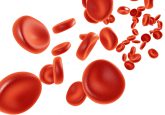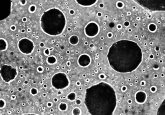Processa Pharmaceuticals releases data update on their novel therapeutic strategy for better cancer management

Recently unveiled interim analysis of Phase 1B clinical trial data indicates that Processa’s innovative chemotherapy approach might enhance patient safety and drug efficacy for a broader range of patients by tailoring the dosing regimen to each specific individual.
Processa Pharmaceuticals (MA, USA) is a clinical-stage pharmaceutical company whose goal is to design and develop new chemotherapeutic drugs to improve the current levels of drug efficacy and safety for patients with various cancers. Processa reports their interim analysis from their ongoing Phase 1B trial of Next Generation Capecitabine (NGC-Cap), monitoring patients suffering from gastrointestinal cancer.
NGC-Cap is a combination therapy that combines the use of PCS6422, Processa’s irreversible dihydropyrimidine dehydrogenase (DPD) enzyme inhibitor, alongside small dosages of capecitabin. Capecitabin is a commonly used chemotherapy, which is processed to 5-fluorouracil (5-FU) in the patient’s body, whilst DPD enhances the additional transformation of 5-FU into fluor-beta-alanine (FBAL) – a byproduct that contributes to the onset of chemotherapy’s dose-limiting side effects.
Processa’s research has indicated that monitoring DPD concentration levels could offer a means to understand individual patient reactions to varying NGC-Cap dosage levels. Personalized treatment plans will aim to prevent side effects, enhance overall drug effectiveness and ensure patient safety and tolerance. At this time, capecitabine is one of the most widely used drugs for chemotherapy, with the dosage being based on a standard dosage regimen that is used for all patients. However, when a patient cannot tolerate the standard dose, the treatment plan becomes interrupted.
“The presence of DPD as expressed by the plasma concentration of FBAL provides us important information that may confirm our hypothesis that we can optimize our dosing of NGC-Cap to maintain efficacy and minimize side effects by carefully tracking each individual patient following an initial dosing of our novel chemotherapy. By following the chemical concentration in the plasma in each patient, we may be able to actually optimize therapy through individualization of each patient’s dosing regimen. We find these results, albeit early results, to be very encouraging.”
states Sian Bigora, Processa’s Chief Development and Regulatory Officer.
David Young, Pharm D, PhD, Processa’s President of R&D, also had this to comment,
“As we continue to obtain data from the Phase 1B trial, we are able to better understand the relationship between the concentrations of FBAL and 5-FU in the body relative to the time of administration and formation of de novo DPD. This study has already demonstrated that the addition of PCS6422 to low doses of capecitabine results in the formation of more cancer-killing metabolites before the concentration of the metabolites that only cause dose-limiting side effects significantly increases. Part of our ongoing objectives for the Phase 1B trial and our planned Phase II trial will be to determine the optimal regimen of NGC-Cap to balance the safety and efficacy profiles for each individual patient by monitoring DPD activity through 5-FU and FBAL. We look forward to continuing to investigate NGC-Cap and to providing updates as they develop.”
The Phase 1B trial for NGC-Cap, comprising five cohorts, has made substantial progress. The first three cohorts have all concluded both the enrollment and the initial safety assessment stages. The fourth cohort has recently finished enrollment, with an ongoing safety evaluation and it is anticipated that the final cohort is set for the fourth quarter of 2023 for enrolment completion.
This timeline paves the way for a comprehensive safety profile and potentially early efficacy insights into NGC-Cap; This will allow Processa to make informed decisions regarding the suitable dosage regimens for their upcoming Phase II study involving colorectal cancer patients. This step is crucial in determining the Optimal Dose Regimen, as stipulated by the FDA’s newly introduced Project Optimus Initiative.





